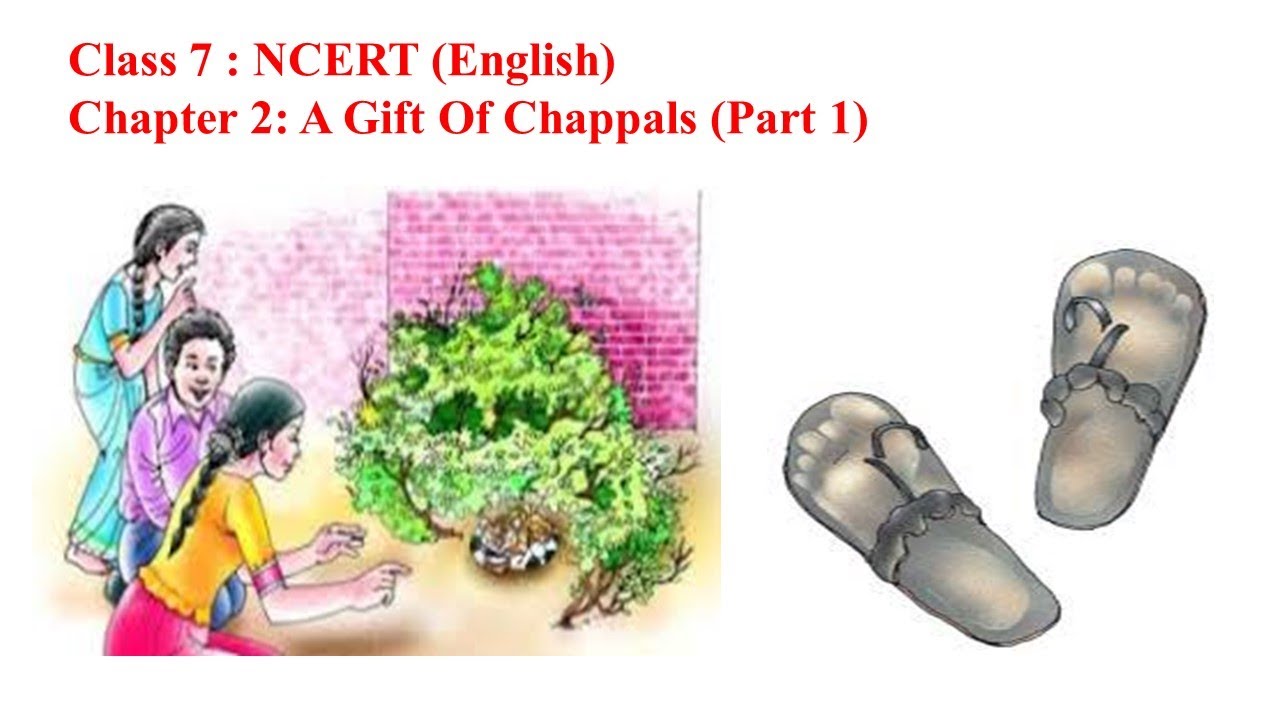
About Lesson
“A Gift of Chappals”
Part I: Discovering the Kitten
-
Mridu Visits Ravi and Meena:
- Mridu arrives at Ravi and Meena’s house.
- She takes off her slippers and notices a dusty pair of large black slippers with clear toe marks.
-
Secret Kitten:
- Ravi drags Mridu to the backyard where they hide a small kitten named Mahendran.
- They found the kitten mewing outside the gate earlier that morning.
-
Feeding the Kitten:
- The children struggle to feed the kitten milk from the kitchen.
- Ravi describes how he tricked Paati into giving him milk.
-
Kitten’s Name and Story:
- Ravi gives the kitten a grand name: Mahendravarma Pallava Poonai.
- He claims the kitten is a descendant of the Pallava dynasty’s emblem and related to the ancient Egyptian cat-goddess Bastet.
-
Interruption by Lalli’s Violin Practice:
- Lalli’s loud and unpleasant violin practice startles the children and the kitten.
- The kitten, frightened by Lalli’s screeching, hides under a tray of red chillies.
Comprehension Check Questions for Part I:
- Meena shares the secret of the kitten with Mridu.
- Ravi gets milk for the kitten by tricking Paati.
- Ravi claims the kitten’s ancestors are the Mahabalipuram Rishi-Cat and the Egyptian cat-goddess Bastet. This shows his rich imagination.
- Statements about Ravi:
- (i) He is merely trying to impress Mridu: Agree.
- (iii) He has a rich imagination: Agree.
- The noise that startled Mridu and frightened Mahendran was Lalli’s violin practice.
Part II: The Beggar and the Chappals
-
Beggar’s Visit:
- A beggar visits the house, sitting under a neem tree.
- Ravi’s mother instructs him to send the beggar away, as he has been coming daily for a week.
-
Beggar’s Plight:
- The beggar shows his blistered feet, indicating he needs footwear.
- The children feel sympathy and decide to find a pair of slippers for him.
-
Finding the Chappals:
- Ravi finds the large black slippers Mridu noticed earlier.
- The children give these slippers to the beggar, who gratefully wears them and leaves.
-
Music-Master’s Missing Chappals:
- The music-master discovers his slippers are missing after his lesson with Lalli.
- He searches the verandah frantically, but the slippers are gone.
-
Rukku Manni’s Anger:
- Rukku Manni realizes the children gave the music-master’s slippers to the beggar.
- She scolds the children, especially Ravi, for their mischief.
-
Resolution:
- Rukku Manni gives the music-master Gopu Mama’s new slippers as a replacement.
- The music-master reluctantly accepts them and leaves.
- Rukku Manni, relieved and amused, reflects on how to explain the situation to Gopu Mama.
Comprehension Check Questions for Part II:
- The beggar shares his story and need for footwear.
- Ravi and the children find the music-master’s slippers and give them to the beggar.
- Rukku Manni discovers what happened and resolves the situation by giving Gopu Mama’s slippers to the music-master.
- The music-master leaves, and Rukku Manni prepares to explain the incident to Gopu Mama later.
Key Themes and Messages:
- Kindness and Generosity: The children’s actions, though mischievous, stem from a place of kindness and a desire to help the needy.
- Childhood Innocence: Ravi’s imaginative stories and the children’s solution to the beggar’s problem highlight their innocence and creativity.
- Responsibility and Consequences: The children learn about responsibility and the consequences of their actions when the music-master loses his slippers.
Join the conversation
